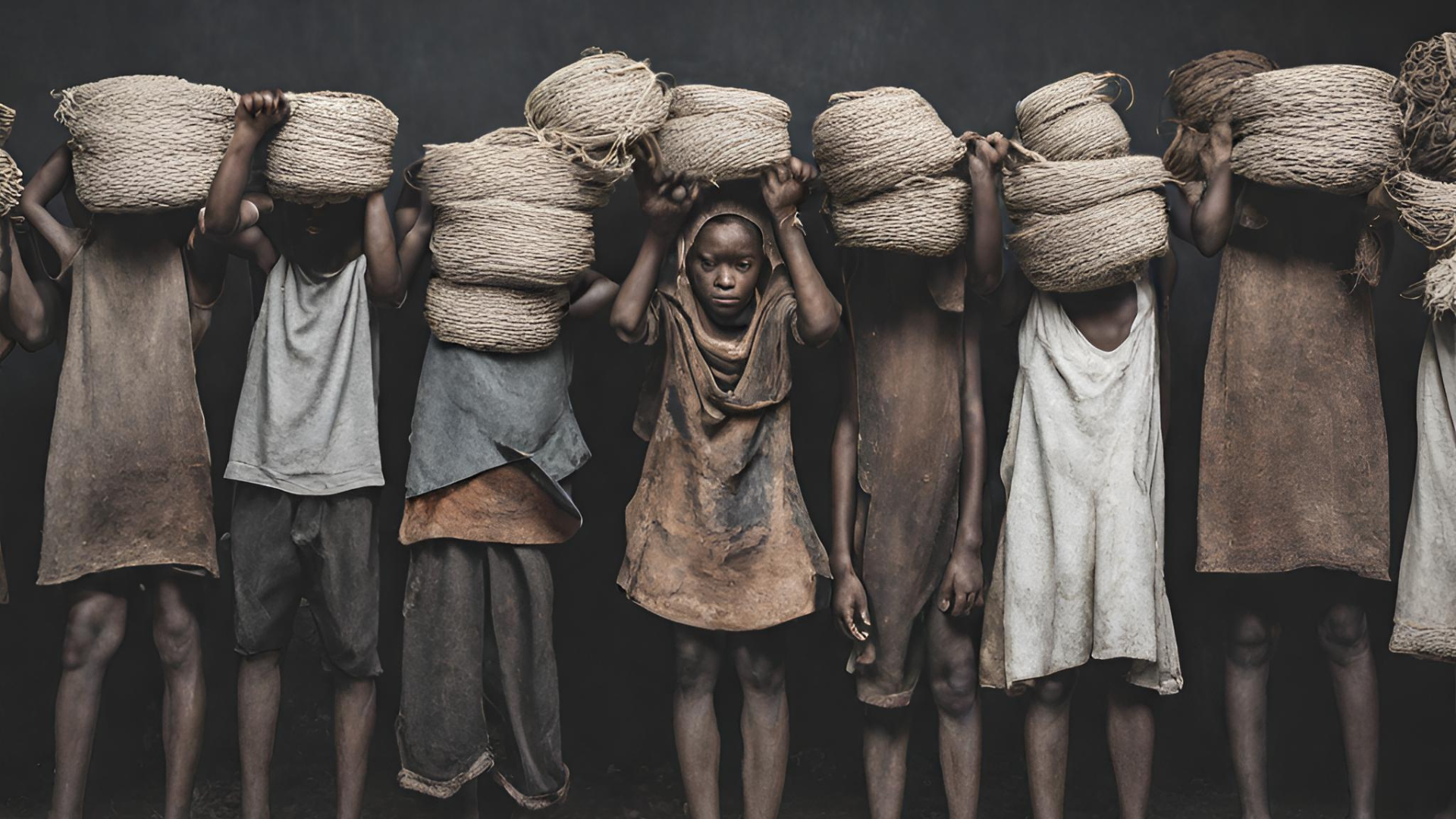
A Spotlight on Modern Slavery
Over 50 million people suffering and $150 billion in profits. Is the world coping with modern slavery? What steps should you take to improve the reality? Find out what role the financial sector has to play in detecting modern slavery.
Introduction
Modern slavery is hidden in plain sight and is deeply intertwined with life all around the world. The ILO estimate that modern slavery effects over 50 million people worldwide, growing by 10 million since 2016. This has come from increasing and more complex conflicts, environmental degradation, climate induced migration, a global rollback of women’s rights and the social and economic impacts of the Covid pandemic. It's a multi-billion-dollar business generating up to $150 billion in illegal profits each year. Nearly half of these annual profits ($46.9 billion) are generated in developed countries, including the UK. Every day we use products or services that have had a hidden human cost; it is deeply embedded in our society as a manifestation of extreme inequality. G20 countries are found to be fuelling modern slavery through global supply chains with at risk products being imported and distributed throughout the economy. The global slavery index revealed the ten countries with the highest prevalence of modern slavery which are North Korea, Eritrea, Mauritania, Saudi Arabia, Türkiye, Tajikistan, United Arab Emirates, Russia, Afghanistan, and Kuwait. Six G20 countries were found to be amongst the countries with the largest number of people in modern slavery including India, China, and the United States.
What is modern slavery?
Modern slavery can be defined as the illegal trade in people - where they are bought, sold, and exploited. It is often hidden, involves or takes place alongside a wide range of abuses and other criminal offences such as drug trafficking, illegal wildlife trade and money laundering. Modern slavery can be an umbrella term that covers the offenses of human trafficking, servitude and forced labour as set out in UK anti-slavery law. It involves the control and exploitation of people for financial game. Characteristics of those that are victims of modern slavery are that they are owned or exploited by an employer, they are forced to work through physical or mental threat, they are treated as a commodity and are physically constrained or have their own freedom restricted.
Types of modern slavery
There are different types of modern slavery but the most common are labour exploitation, domestic servitude, sexual exploitation (can also be child sexual exploitation) and criminal exploitation. The most common type of modern slavery is labour exploitation. This is where a victim is forced to do work against their will or under the threat of punishment. Domestic servitude is where the victim is usually expected to work around a person home, this can be in the form of a controlled marriage, relationship or within an extended family environment. Sexual exploitation occurs when a victim is forced to provide sexual services for money, child sexual exploitation refers to the grooming and exploitation of those under 18. Criminal exploitation is when a victim is forced to work or become involved in criminal gang- related activity such as theft or fraud.
Next steps
Despite modern slavery numbers increasing, government action has stagnated, with no country on track to achieve the UN sustainable development goal of ending modern slavery, forced labour and human trafficking by 2030. Despite legislation in many countries, for example, The Modern Slavery Act 2015 (UK), the increasing numbers of modern slavery highlight that these are ineffective; failing to tackle what they were designed for. Governments are being called upon to end modern slavery on their shores and in their supply chains. The five key areas identified to be actioned by governments are:
- Implement stronger measures to combat forced labour in public and private supply chains by introducing legislation to stop governments and businesses from sourcing goods or services linked to modern slavery.
- Embed anti-slavery measures in humanitarian and crisis responses and ensure that human rights are embedded in efforts to build a green economy.
- Prioritise human rights when engaging with repressive regimes, by conducting due diligence to ensure that any trade, business, or investment is not contributing to or benefitting from state-imposed forced labour.
- Focus on prevention and protection for vulnerable populations by providing primary and secondary education for all children, including girls.
- Ensure effective civil and criminal protections in legislation to tackle forced and child marriage, including raising the age of marriage to 18 for girls and boys, with no exceptions.
NatWest Group response
Modern slavery is evident at every level of society, including across the financial sector. As modern slavery is conducted primarily for financial gain, the financial sector has a significant role to play in detecting the patterns that that can arise from coercion, exploitation, and misuse of bank accounts. The NatWest group are dedicated to tackling modern slavery with yearly statements outlining their commitments to this. NatWest’s aim is to seek to review and address human rights risks, including modern slavery risks, across the value chain. Their approach to modern slavery and human trafficking is evolving to keep pace with the changing external environment. Current work is focused on reviewing and updating policies and processes such as the supplier charter, refreshed values and including facilitation of slavery in the speak up policy. NatWest are assessing their supply chain for risks of modern slavery, ensuring suppliers met key metrics for sustainability. They have strengthened their activity to tackle human trafficking as an area of financial crime using data and analytics to detects indications of modern slavery and human trafficking. Colleagues are being trained on modern slavery across the group to ensure that people recognise the signs of it and how to report any concerns. Regular engagement with stakeholders occurs including charities to ensure a deep understanding of modern slavery and any changes that occur in the external environment. The NatWest group are proactively working towards the delivery of the sustainable development goal of ending modern slavery, forced labour and human trafficking by 2030 however this requires a collaborative approach from governments, organisations, and people to make this happen.
Conclusion
To conclude, modern slavery is a global issue, permeating all levels of our society. The number of victims is continuing to grow with the human cost evident. The ever-changing environment which we live in has allowed modern slavery to grow with the financial gain to criminals increasing to the increasing detriment of victims. As a society, we need to be vigilant to potential modern slavery across all levels. Governments and organisations need to ensure that they are putting every effort into deterring modern slavery from happening, with more work required not just to reach goals but also help those involved and prevent more from getting involved.
Author: Emma White
Graphic: Canva







